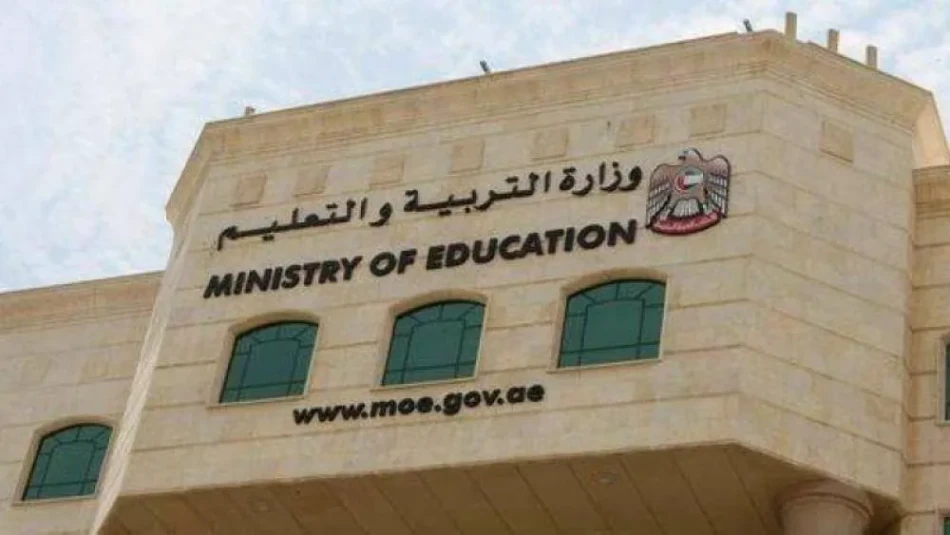
Ministry of Education Unveils Revamped Curriculum for Upper Elementary Grades
UAE Overhauls High School Curriculum with Flexible Learning Tracks for 2025-2026
The UAE Ministry of Education has unveiled a comprehensive restructuring of its high school curriculum, introducing flexible learning pathways that prioritize student choice and specialized skill development. The new framework, applicable to grades 11 and 12, represents a significant shift toward personalized education that could position the Emirates as a regional leader in adaptive learning systems.
Core Structure: 36 Weekly Hours Across Multiple Tracks
The ministry's plan establishes a uniform 36-hour weekly schedule distributed across mandatory and elective subjects. This standardization applies to both public and private schools following the national curriculum, encompassing general, advanced, elite, and applied learning tracks.
In the general track, students complete 24 hours of core subjects including Arabic and English languages, Islamic studies, social studies, and ethics education. Mathematics receives particular emphasis with 7 weekly hours across all scenarios, reflecting the UAE's continued focus on STEM readiness in line with its Vision 2071 goals.
Student Choice Takes Center Stage
The curriculum's most notable innovation lies in its elective structure. Students can select one or two subjects from physics, chemistry, biology, computing, creative design and innovation, or arts (including visual arts, music, and theater). This flexibility allocates 3-6 weekly hours depending on the chosen track, supported by targeted academic support sessions.
Significantly, 12th-grade students in the general track can opt out of physics entirely—provided both student and parent sign a written acknowledgment. This represents a marked departure from rigid subject requirements that have traditionally characterized Gulf education systems.
Advanced Track Deepens Scientific Focus
The advanced track maintains the same mandatory subject distribution but intensifies scientific coursework. Students receive expanded hours in physics and chemistry electives, with the curriculum split between 24 mandatory hours and 12 elective hours, plus academic support sessions.
This two-tier approach mirrors successful models in Singapore and parts of Canada, where students can pursue either broad-based education or specialized academic preparation based on university and career aspirations.
Private Schools Gain Third Language Requirement
Private schools following the national curriculum face slightly different parameters, with 26 weekly hours for core subjects that include a mandatory third language alongside Arabic and English. This trilingual emphasis positions UAE graduates competitively in an increasingly globalized economy, particularly as the country seeks to attract international businesses and talent.
The third language requirement acknowledges the UAE's multicultural reality while ensuring students maintain strong Arabic foundations—a balance other Gulf states have struggled to achieve effectively.
Elite and Applied Tracks Emphasize Specialization
The elite and applied tracks allocate 10 weekly hours specifically to specialized skills development—the highest proportion in the new framework. These pathways maintain strong foundations in Arabic, mathematics, English, and social studies while incorporating advanced coursework in biology, physics, and chemistry.
However, the ministry confirmed that the 2025-2026 academic year will be the final intake for the elite track, suggesting a strategic consolidation of specialized programs. This decision likely reflects resource optimization and alignment with the UAE's broader educational reform initiatives.
Regional Leadership in Educational Innovation
The UAE's flexible curriculum model positions it ahead of regional competitors in educational adaptation. While Saudi Arabia has introduced some elective options in its Vision 2030 reforms, and Qatar has experimented with specialized tracks, the Emirates' comprehensive choice-based system represents the most ambitious restructuring in the Gulf.
For international schools and educational consultants, this framework signals the UAE's commitment to preparing students for diverse post-secondary pathways—whether university-bound or career-focused. The emphasis on computing and creative design particularly aligns with the country's ambitions in artificial intelligence and digital economy sectors.
The success of this flexible approach will likely influence curriculum decisions across the region, as other Gulf states monitor student outcomes and university admission rates in coming years. Early implementation data will be crucial for determining whether increased choice translates into improved learning outcomes and career readiness.
Most Viewed News

 Omar Rahman
Omar Rahman






